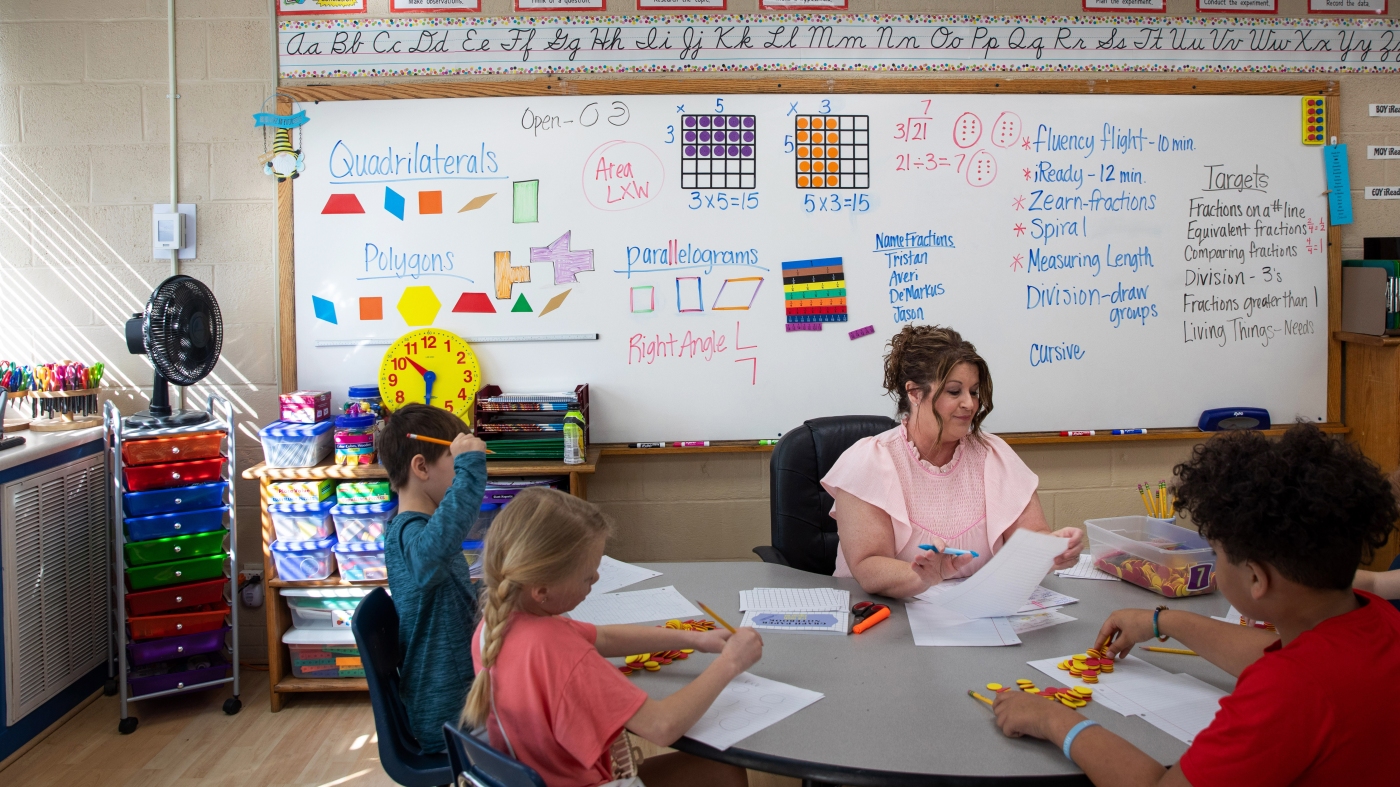Revamping Math Education in Alabama Leads to Remarkable Results
In a rural corner of Alabama, DeKalb County’s elementary schools are making waves with their unconventional approach to teaching math. The district’s hands-on, interactive method has brought a tangible improvement in student performance, setting an example for educational reform across the state.
In DeKalb County, traditional math lessons with worksheets have been replaced by engaging activities involving toy bears, plastic blocks, and colorful magnetic tiles. This shift in teaching style is part of a broader re-imagining of math instruction that has led to significant improvements in student performance between 2019 and 2024. This is noteworthy considering the pandemic’s impact on education nationwide.
Alabama stands out as the only state where fourth-grade math scores have surpassed pre-pandemic levels, according to The Nation’s Report Card. This marks a significant achievement for the state and highlights the potential of state-level educational reforms.
“A model for how districts can accelerate student learning in math”
Located in the foothills of Lookout Mountain, DeKalb County is home to a diverse student population, with a significant number living in low-income households and about 25% being English language learners. Despite these challenges, the county has become a beacon of success in math education.
DeKalb County’s math scores have improved by nearly a full grade level, the highest since at least 2009, according to the Education Recovery Scorecard, a joint initiative by Harvard and Stanford researchers. The report commended DeKalb for being a model of accelerated student learning and recovery from pandemic-induced setbacks.
Superintendent Wayne Lyles attributes this success to the county’s determination and pride, despite its high poverty rate. The decision to resume in-person learning in fall 2020, ahead of many other districts, also played a crucial role in this achievement.
A new roadmap for teachers, along with some toys
Julie West, a DeKalb County native, was tasked with re-envisioning the district’s math curriculum. She collaborated with math teachers to align textbooks with state standards, creating a comprehensive curriculum roadmap enriched with videos and model lessons.
West emphasized the importance of making math tangible, especially for young learners. She used federal COVID relief funds to equip classrooms with math tools and manipulatives, such as counting bears and fraction tiles, to help students grasp mathematical concepts physically.
Learning to speak fluent math
In DeKalb County, math is taught as a language, fostering fluency from an early age. This approach was evident in a third-grade class where students solved multiplication problems mentally, using various methods, and shared their strategies in a supportive environment.
Such activities, known as number talks, encourage students to explore multiple solutions in a judgment-free zone, enhancing their mathematical fluency and enthusiasm.
Investing in teachers and keeping an eye on the data
DeKalb’s educational strategy also focuses on empowering teachers. The district hired math coaches to support early-grade teachers, many of whom lacked extensive math training. These coaches facilitate learning communities where teachers can experiment with new lessons and share insights.
The district’s commitment to data-driven decisions is another key element of its success. Teachers and administrators are encouraged to constantly analyze student data to identify and address learning gaps effectively.
Alabama takes the math cause statewide
Mirroring DeKalb’s efforts, Alabama’s state leaders launched the Alabama Numeracy Act in 2022 to enhance math proficiency among elementary students. The initiative aims to place math coaches in every elementary school, fostering a statewide improvement in math education.
Eric Mackey, Alabama’s superintendent of education, views math as a language and a way of understanding the world. The state’s commitment to this educational transformation has already moved Alabama from last place in fourth-grade math scores to a mid-range position nationwide.
Karen Anderson, head of the state’s new Office of Math Improvement, is leading the implementation of this initiative. Her challenge lies in overcoming the negative stigma associated with math and changing perceptions to view it as a vital and engaging subject.





